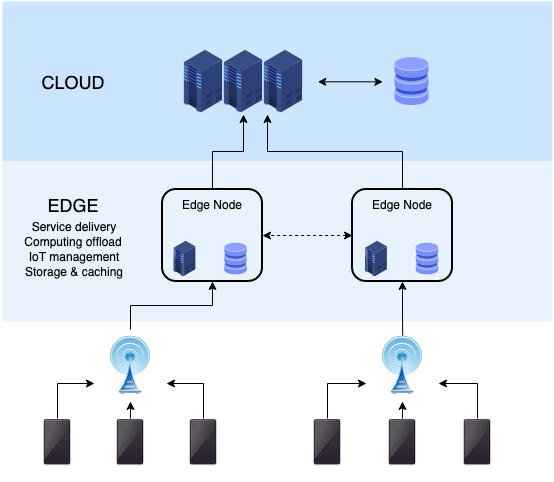POSITION SUMMARY
We are a Fortune 500 company looking for an exceptional candidate to develop smart infrastructure capabilities for edge computing. The master of edge computing (MoEC), who reports to the CIO, will define the IoT roadmap, carefully evaluate the technical requirements, assess the feasibility of establishing the edge processing unit, and measure the return on investment.

The winning candidate will be in charge of developing, maintaining, and safeguarding the edge computing environment. The MoEC will design and develop the hardware and software, as well as overhaul the existing network infrastructure for reliability, efficiency, and latency, and balance load-shifting across the network and interconnecting networks. Furthermore, the MoEC will establish the cloud-edge relationship by determining which types of data should be stored where, ensuring the solution’s scalability, and addressing geographical challenges for the edge (metro vs. semi-urban vs. rural and for mobile devices)
OVERALL REQUIREMENTS
Our organization is experiencing increased data volumes as a result of increased connectivity, necessitating unlimited storage and processing capacity. Furthermore, real-time decision-making is increasingly becoming a business requirement. The current Internet model, in which individual products feed into massive centralized data centers, which then process the data at warp speed, is no longer viable. Edge computing liberates the potential of connected hardware devices by decentralizing them and transforming them into data centers in their own right. It gives the object an isolated node with its own processing and storage system as well as built-in analytic capabilities.
As the MoEC, you will assist us in overhauling the entire infrastructure to ensure that the new technology interacts seamlessly with legacy systems, minimizes latency, and delivers the required business benefits. In this role, you will ensure IT readiness for processing, analytics, and operations/communications protocols, as well as smooth network operation, consistent power and cooling supply, 24×7 monitoring, and security/access. You will be a key player in improving our ability to do business, generate value, make decisions, meet customer expectations, and bring products and services to market by leveraging real-time insights.
SPECIFIC RESPONSIBILITIES
- To justify upfront investments, define the business impact of edge computing.
- Construct micro-modular data centers with one or two racks in a unit to provide connectivity and intelligence to devices.
- Ensure that edge computing devices/micro data centers are compatible with legacy systems.
- Create a software-defined networking infrastructure that allows data to be processed at the edge, through intermediate nodes. And back into a cloud core where this mode is used.
- Create strategies for the edge computing system’s supervision, maintenance, and protection.
- Create a data prioritization matrix (which data gets priority across the network). Define data ownership and rights as well to address data privacy issues head on.
- Build infrastructure immunity from the ground up by utilizing machine learning and ensuring zero-latency response to cyber-attacks. Develop an emergency response protocol into the edge to protect against an unwanted intrusion (similar to the emergency call feature on a mobile device without the need to unlock it).
- Collaborate with larger interconnected colocation providers and telecom providers to lay the groundwork for the edge computing network infrastructure.
- Create a user-friendly system capable of identifying and communicating with devices and users on the edge while maintaining mobility and security.
- Outline, test, and scale the role of edge containers.
- Allow for the development of new products and services based solely on real-time data.
SKILLS & QUALIFICATIONS
- A Ph.D. in computer science, electronics, telecommunications, electrical engineering, or a related field is required. It is necessary to have insights into system modeling as well as knowledge of distributed architectures.
- Significant experience with IoT hardware and software platforms is required. Applicants with experience with industrial IoT implementations and best practices are especially sought.
- It is necessary to have prior experience in one or more of the following areas:
- Development of embedded systems
- Sensor networks that are wireless.
- IoT protocols and security
- Real-time software development
- Deep learning in distributed systems is a term that refers to the application of machine learning to distributed systems.
- Capability to envision, specify, architect, and design cloud and edge computing environments
As the master of edge computing, you will assist us in overhauling the full-scale infrastructure to ensure that the new technology interacts seamlessly with legacy systems, minimizes latency. And delivers the necessary business benefits.

